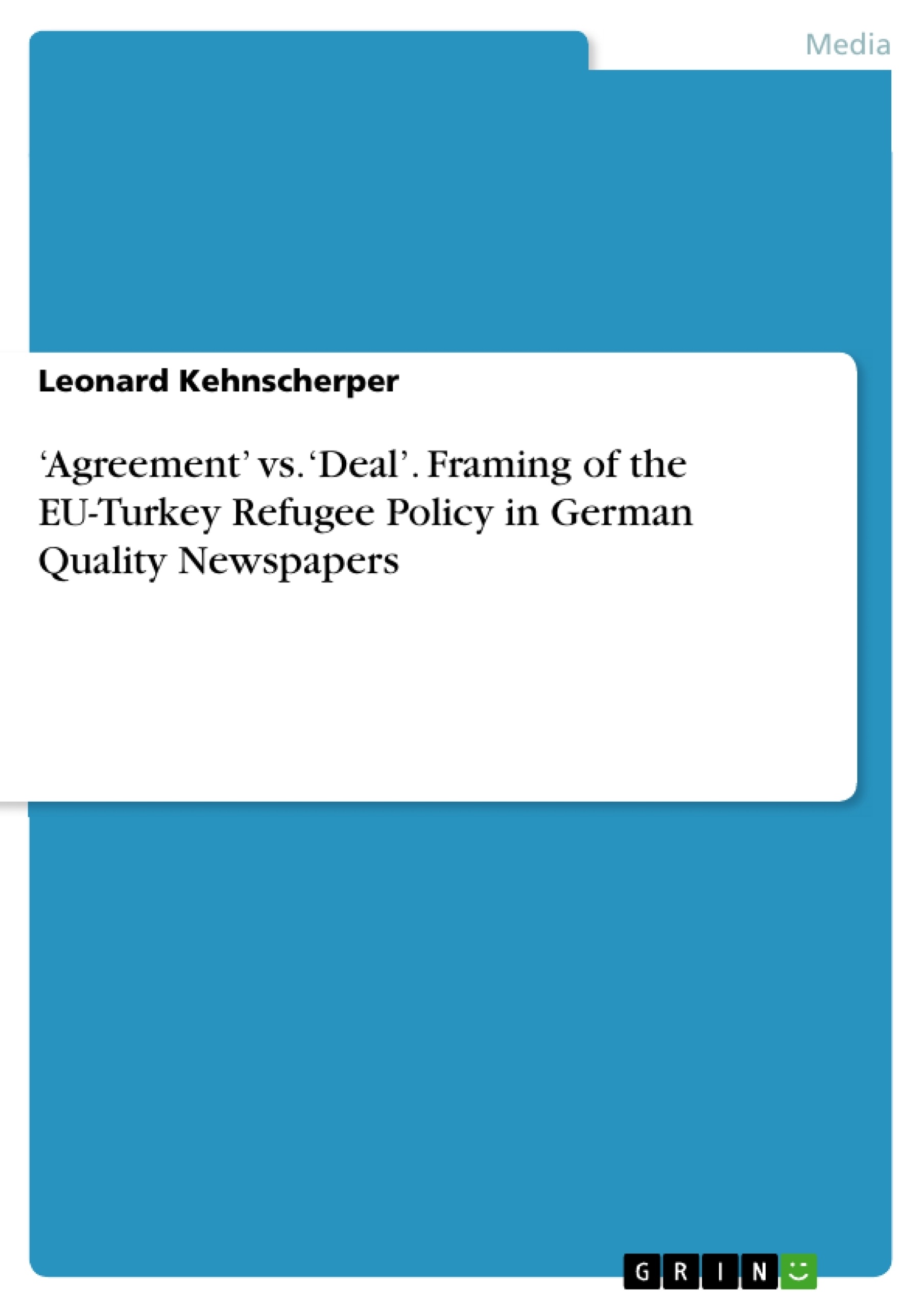„The chancellor does not make any deals.” This is a statement from the German government spokesman Georg Streiter, who answered a question of the journalist and YouTuber Tilo Jung during a session of the Federal Press Conference in April 2016 (Jung 2016). Streiter obviously did not find the term deal appropriate for the new agreement1, the EU had made with Turkey in order to reduce the number of refugees coming to the EU via Turkey.
In Germany’s political language the term deal has nothing but a bad, dubious or at least un professional meaning, whereas Abkommen–the German word for agreement–has a neutral and respectable connotation. Consequently, it is no surprise that spokesman Streiter did not like a journalist using a term like deal. However, Jung used the term in full awareness of its bad connotation, probably to put emphasize on the arguably political background of the agreement.
Inhaltsverzeichnis (Table of Contents)
- Introduction
- Media-state relations in political communication research
- Methods
- References
Zielsetzung und Themenschwerpunkte (Objectives and Key Themes)
This research proposal analyzes the framing of the EU-Turkey refugee policy in German quality newspapers. It aims to investigate how the German government's claims concerning the agreement have been adopted by the German press and to what extent the press has provided a critical view. The research focuses on the role of media-state relations in shaping the narrative surrounding the agreement, particularly examining the use of the terms "agreement" and "deal" in the discourse.
- Framing of the EU-Turkey refugee policy in German quality newspapers
- Media-state relations in political communication research
- The role of language and terminology in shaping public perception
- The influence of governmental narratives on media coverage
- The impact of the EU-Turkey agreement on the refugee crisis and European politics
Zusammenfassung der Kapitel (Chapter Summaries)
- Introduction: This chapter introduces the research topic and the context of the EU-Turkey agreement, highlighting the controversy surrounding its framing and implementation. It analyzes the different meanings of "deal" and "agreement" and how these terms reflect the political dynamics surrounding the agreement.
- Media-state relations in political communication research: This chapter reviews relevant literature on media-state relations and analyzes various theories that explain the relationship between government and media. It focuses on Bennett's indexing theory and its application to the EU-Turkey agreement context.
Schlüsselwörter (Keywords)
This research focuses on the following keywords: EU-Turkey refugee policy, framing, media-state relations, political communication, German quality newspapers, indexing theory, "agreement" vs. "deal", public perception, refugee crisis, European politics.
Frequently Asked Questions
What is the difference between an "agreement" and a "deal" in political framing?
In German political discourse, "agreement" (Abkommen) has a neutral, respectable connotation, while "deal" is often perceived as dubious, unprofessional, or politically motivated.
How did German quality newspapers frame the EU-Turkey refugee policy?
The research investigates whether the press adopted the government's official narrative of a respectable "agreement" or used the more critical term "deal" to highlight the controversial nature of the policy.
What is Bennett's indexing theory in media research?
Indexing theory suggests that news organizations "index" the range of voices and viewpoints in their coverage to match the range of debate among mainstream political elites.
Why was the EU-Turkey agreement controversial?
The agreement aimed to reduce refugee numbers coming to the EU via Turkey, raising significant ethical and political questions about human rights and the EU's reliance on external partners.
How does language shape public perception of the refugee crisis?
By choosing specific terms like "deal," journalists can signal skepticism about the transparency or morality of a policy, thereby influencing how the public evaluates government actions.
- Quote paper
- Leonard Kehnscherper (Author), 2017, ‘Agreement’ vs. ‘Deal’. Framing of the EU-Turkey Refugee Policy in German Quality Newspapers, Munich, GRIN Verlag, https://www.grin.com/document/385681



